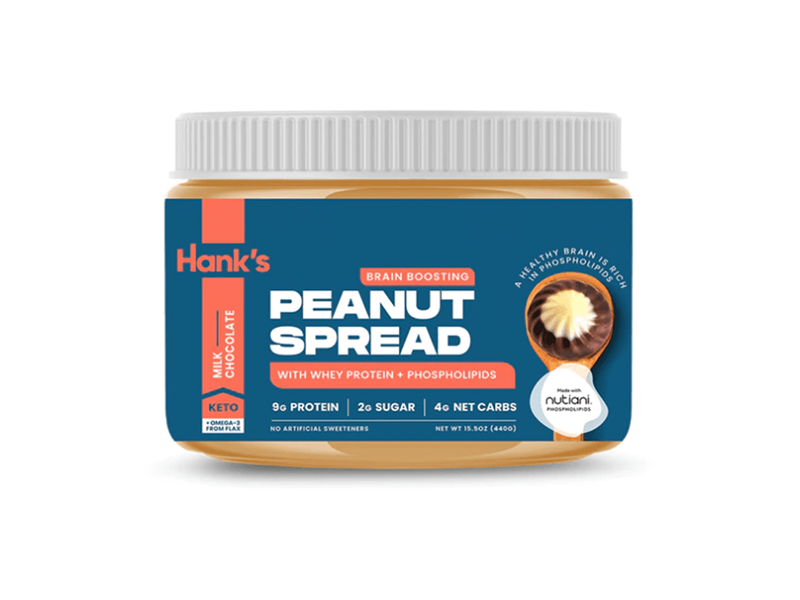SUGGESTED SEARCHES
From Sports & the Microbiome to Women's Health & Performance
From Sports & the Microbiome to Women's Health & Performance
Concept Card: Phospholipid & Protein Shake
From Sports & the Microbiome to Women's Health & Performance
From Sports & the Microbiome to Women's Health & Performance
Concept Card: Crispy Protein Granola Bar
From Sports & the Microbiome to Women's Health & Performance
From Sports & the Microbiome to Women's Health & Performance
Concept Card: Phospholipid & Protein Powder
From Sports & the Microbiome to Women's Health & Performance
From Sports & the Microbiome to Women's Health & Performance
Whitepaper: Fonterra Athlete Incubator Project
The recently concluded Sports & Active Nutrition Summit USA, hosted by NutraIngredients USA in San Diego from February 12-14, 2024, served as an epicenter for innovative thought and collaborative action.
The event included a diverse array of delegates, from R&D scientists to marketing experts, sales leaders, regulatory specialists, and founders, all dedicated to propelling the industry forward and addressing the evolving needs of a diverse consumer base. In this article, we distil some of the key insights that emerged.
Athlete-Inspired Innovations for All
The evolution of sports nutrition into a mainstream phenomenon is an ongoing trend, characterized by an expanded understanding of traditional solutions. Protein, for example, is no longer solely associated with muscle bulk but is recognized as a key component of overall health.
In his enlightening presentation, "State of Active Nutrition", Scott Dicker, Director of Market Insights at SPINS, highlighted another example: hydration. He picks that hydration products — including stick packs, effervescent tablets, and ready-to-drink options from active nutrition brands, are set to disrupt the energy and sports drink market. Their appeal extends beyond athletes, resonating with the broader consumer market.
As we look beyond 2024, Dicker highlights the crucial shift from focusing on lifespan to prioritizing health span. This paradigm shift, emphasizing healthy living and aging gracefully, is influencing consumption patterns across all demographics and product categories. With nutrient density to deliver health benefits now and for the future, products such as juices, energy items, and protein-enriched foods, are growing in popularity.
Explore our Brain + Body Solutions – Tested with athletes, designed for the everyday consumer.
Women's Health in Sports: Tapping into a Billion-Dollar Market
Women's sports are making significant strides, gaining increased viewership and pushing the industry to new heights, projected to reach $1 billion this year.
However, despite these advancements, research lags in providing the necessary support for female athletes, as highlighted by Katie Hirsch, Assistant Professor at the University of South Carolina, in her presentation “The Current State of Science for Active Women”.
Only 34% of sport science studies involve women and just around 6% focus solely on women.
As the largest buyers of dietary supplements, women represent a significant market for targeted health solutions to manage their needs across the month and life cycle. Areas of opportunity include:
- Body Composition
- Energy / Fatigue
- Mental Health
- Physical Health
- Performance
The future also holds promising technological advancements, as exemplified by Wild A1, a pioneering company that uses wearables to track and optimize women's performance.
The Microbiome: A Game Changer
The topic of the microbiome repeatedly emerged, with discussions focusing on its diverse and evolving benefits. These range from digestive health and gastrointestinal disruption to immune advantages, mood regulation, and sleep enhancement.
Dr. Alex Mohr, Director of Microbiomics at Theriome, on “Exploring the Gut-Muscle Axis: Microbiome Insights for Exercise Performance” highlighted that athlete microbiomes show more similarity amongst each other compared to sedentary individuals and demonstrate greater resilience in returning to a pre-distressed state.
There's a growing interest in studying the microbiomes of high-performing athletes to understand if their gut microflora could enhance others' performance. Nella Probiotics by FitBiomics, a daily gut health probiotic, is made from probiotic strains sourced from the guts of the fittest & healthiest people in the world.
Despite the interest, bridging the gap between gastrointestinal health in sports and probiotics requires more education for individuals to understand and harness the potential of the microbiome for improved performance on and off the field.
Balancing Science, Compliance, and Branding
As the industry navigates the transition of emerging science from sports into the mainstream, a key challenge is how to determine the necessary level of supporting clinical science, then how to communicate about ingredient and health benefits to be easily understood by coaches, athletes and mainstream proactive consumers, while complying with regulations. The need for simplicity in messaging and compliance was highlighted, as was the opportunity to educate parents, particularly of young female athletes, to help them thrive and build a foundation for longevity in their athletic endeavors.
Regulatory challenges are particularly a major concern, particularly new bills that may restrict supplement use among younger consumers, potentially affecting industry brands. The industry's resilience is evident, with diverse stakeholders collaborating to meet a wide range of consumer needs. Innovations, such as Apex Compliance's AI algorithm for dietary supplement regulatory compliance, exemplify the industry's commitment to efficient and cost-effective compliance strategies.
Lastly, building successful brands requires shared responsibility between B2B entities and B2C brands. As branded ingredients gain recognition and influence, B2B entities need to invest in marketing at a consumer level, aiding the B2C customer in discovery and understanding these ingredients. Take Hank’s Brain Boosting Peanut Spread for example, made with Nutiani Phospholipids:

At Nutiani, we're committed to aligning with these innovative strides and supporting nutritional advancements. Reach out to us today to discover how we can help you stay at the forefront of the sports and nutrition industry.
MEET THE EXPERT:
Rachel Marshall
Technical Engagement Manager
Rachel is a food professional with a strong technical background, especially in nutritional solutions. She has been with Fonterra in technical, marketing and sales roles since 2000, with her current role drawing on these skills to help customers bring new nutritional products to market.
STAY AHEAD



